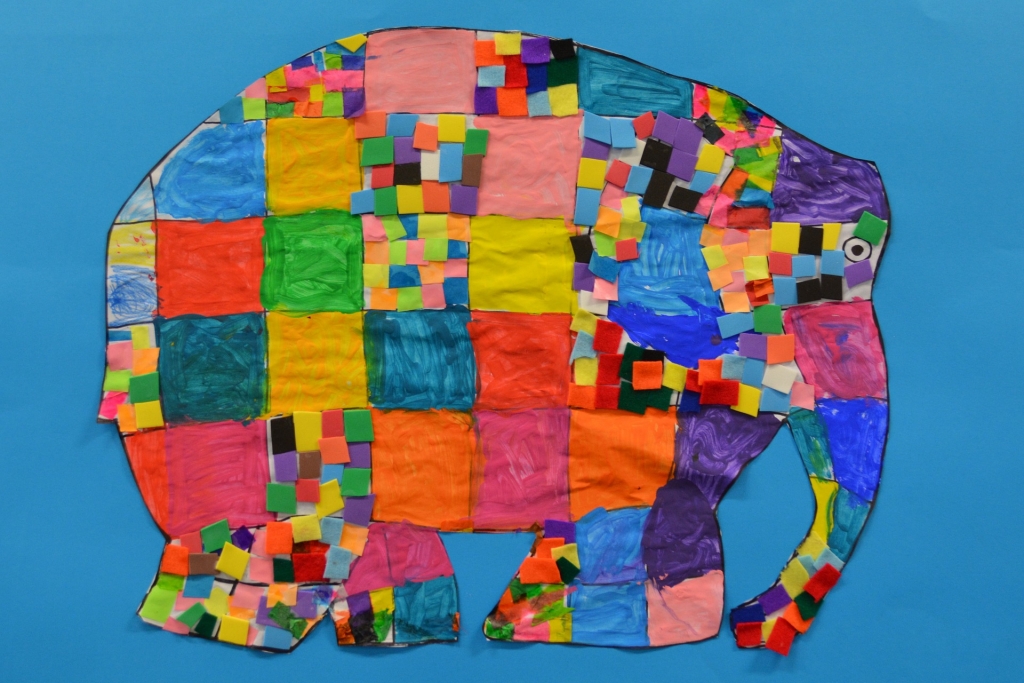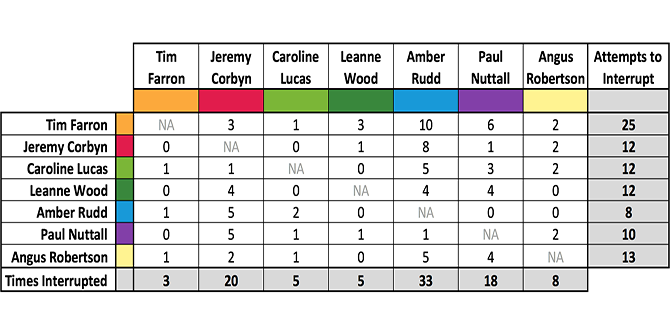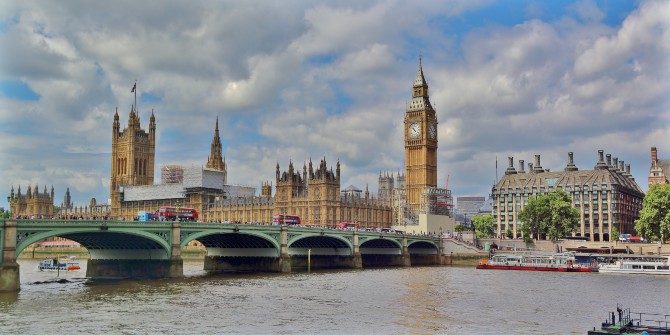
 How do people feel about multicultural policies? Ethnic majorities tend to resent them, and feel less safe in societies with a number of affirmative and rights-based policies, write Pamela Irving Jackson and Peter Doerschler. As a result, governments have come under pressure to ensure policies that tackle inequality benefit everyone. Yet both ethnic majorities and minorities declare themselves happier with their lives and governments when they live in states with multicultural policies.
How do people feel about multicultural policies? Ethnic majorities tend to resent them, and feel less safe in societies with a number of affirmative and rights-based policies, write Pamela Irving Jackson and Peter Doerschler. As a result, governments have come under pressure to ensure policies that tackle inequality benefit everyone. Yet both ethnic majorities and minorities declare themselves happier with their lives and governments when they live in states with multicultural policies.
Elected political leaders in Europe no longer promote multiculturalism as a way of reducing the disparities between ethnic majorities and minorities from immigrant backgrounds. Now programmes intended to tackle inequality are presented as open to all members of the state who need them – as a series of papers published by the Migration Policy Institute has set out.
In a recent article for Democracy and Security, we suggest politicians were pulled towards “mainstreaming” economic, educational and cultural assistance programmes because ethnic majorities complained that multiculturalism policies left them vulnerable to discrimination and crime. Evidence of the strength of these concerns abounds – for example, in the formation of a far-right bloc in the EU Parliament, almost two decades after the 1997 European Year against Racism spearheaded anti-racist policy development.
Political leaders and minority protection agencies need information on how particular policies are received. We therefore looked at the impact of specific types of multicultural policy on several measures that reflect individuals’ sense of unease in society. Policies that simultaneously offer the greatest benefit to minorities and the least detriment to majorities are likely to have the most staying power. Our research suggests that self-identified ethnic minorities, Muslims and members of the national majority differ in how they judge policies intended to increase the legitimacy of the claims minority group members make on the state (for instance, affirmative action). Sometimes they hold surprisingly contradictory positions.
While those who identify with the majority feel discriminated against and more fearful of crime in the presence of most types of multicultural policies, they also say they are more satisfied with the national government and with their lives generally. Muslims, too, are more satisfied with the national government and with their lives when they live in states with some types of multicultural policies – even though they actually feel less safe in places with dress code exemptions (where girls are allowed to wear the hijab at school, for example).
With data from the European Social Survey for 14 western European states, we used multiple and logistic regression to investigate whether the eight “rights” areas within Banting and Kymlicka’s (2013) composite Multicultural Policy Index (MCP) differentially satisfied or unsettled members of the three self-identified groups. The “rights” areas include: constitutional/legislative/parliamentary affirmation of multiculturalism; school curriculum; media sensitivity and representation; dress-code exemptions; dual citizenship; funding of ethnic group organisations’ cultural activities; bilingual education; and affirmative action.
To assess individuals’ unease and satisfaction, we looked at their sense of being in a group that is discriminated against, whether they felt safe walking alone locally after dark, their satisfaction with life and with the government.
We found that all but two of the nine measures of state multicultural orientation increase the majority’s sense that people like them are being discriminated against – even when background characteristics are controlled. The impact is more consistent for the majority than for either of the self-identified minority respondent groups. Multicultural policies affecting the school curriculum, media, dress-code exemptions, in the form of dual citizenship, in funding for ethnic group cultural preservation and in the form of affirmative action all increase the sense of discrimination indicated by majority group members. They were also more likely to report lower feelings of safety when walking alone near home in states with greater multicultural orientation, even when background factors were controlled. In particular, multicultural policies relating to the media, dress code exemptions and affirmative action had a negative impact on how safe majority groups felt.
Muslims were less likely to feel discriminated against in states with more pro-multicultural policies (after controls for background characteristics) and, in particular, where dress code exemptions were available and affirmative action policies in place. At the same time, Muslims were more afraid of victimisation in countries with dress code exemptions, underscoring the precariousness of the religious minority’s position. When their cultural lifestyle claims (to wear headscarves, for example) are legitimised, this increases their visibility and sense of vulnerability.
Our findings about satisfaction with life and with the national government show the complicated political terrain politicians face. Majority group members are more satisfied with both in states that have embraced multiculturalism. These findings represent a quandary for political leaders, who face short-term pressure from nativists – but a population that, in the long term, will be unhappier if they take an isolationist approach. By making them available to everybody, politicians may try to avoid the negative reactions to multicultural policies that fan the flames of support for far-right parties.
But the growth in extreme-right support across Europe suggests that by backing away from a rigorous defence of multiculturalism, public officials left space for far-right groups, permitting majorities to feel justified in articulating their unease at the presence of minorities and dissatisfaction with the benefits intended to support them. Xenophobia has moved to the fore. The claims made by Muslims and ethnic minorities who seek rights commensurate with their status as citizens in Europe, and asylum applications by migrants at risk of harm, are no longer seen as legitimate.
Europe’s pressing need for immigrant labour and population growth mean the political establishment and the press will have to change direction if they want to maintain current prosperity. They will have to explain why global economic systems need diversity, and provide for the security of voters who feel that they have lost out to globalisation. Programs to counter violent extremism (CVE) among young people who show signs of alienation from Europe should focus not only on Muslim youth attracted to Islamic State and al-Qaeda, but also on majority group members who show signs of violence against those of migrant background. Broadening the focus of CVE programmes to all extremists is a logical and necessary step where mainstreaming has replaced multiculturalism in public policy.
_____
Note: This post was originally published on Democratic Audit. It is based on the authors’ article in Democracy and Security. The authors have also co-authored Benchmarking Muslim Well-Being in Europe: Reducing Disparities and Polarizations (The Policy Press, 2012).
 Pamela Irving Jackson is Professor of Sociology at Rhode Island College.
Pamela Irving Jackson is Professor of Sociology at Rhode Island College.
 Peter Doerschler is Associate Professor of Political Science at Bloomsburg University of Pennsylvania.
Peter Doerschler is Associate Professor of Political Science at Bloomsburg University of Pennsylvania.









Research of where people live, how many friends they have and how much they trust other people suggests that diversity expansion must happen very slowly. The ESS is based on questionnaires. It is apparently not based on records of what people express through their observed actions. Data from the US shows, people move to live near people like themselves no matter what they claim to applaud when asked. This goes for race as well as income and language.
References
– https://onlinelibrary.wiley.com/doi/pdf/10.1111/j.1467-9477.2007.00176.x
– http://www.europeansocialsurvey.org/methodology/
– https://demographics.coopercenter.org/racial-dot-map
The comments in this article show a lack of understanding of what multicultural programs instituted by governments entail and are meant to address. As soon as people mention inclusivity and other measures the first thought people have is preferential or special treatment. The fact however is that these measures are put in there place in an attempt to remedy harmful practices of the past. If we are to take the United States as a template you can draw a straight line from the institution of slavery in 1791 to the abolition of slavery and replacement with the black codes, the institution of Jim Crow laws, the targeting of black organisations by federal agencies, support for apartheid in the African continent, funding of proxy wars. The outrage of the majority at policies instituted in the last 20-30 years to address injustices that have occurred over 400 years and shows a serious lack of empathy and wilful ignorance. Then what makes it worse is these measures over the last 30 years are viewed by the majority as some great oppression and the battle for “freedom of speech” made the new frontier in the quest for civil rights for the oppressed majorities of first world countries…
Knowledge of history is very important. This includes that USA bought 330,000 slaves of which 300,000 arrived in the US alive and today multiplied by a factor of 100 or more. The Spanish and Portuguese bought 12,000,000 and these are today 36,000,000. The Arabs took 20,000,000 in Africa and 1,000,000 in Europe. These are today zero. They were not allowed to multiply. But all this is not relevant for the rate at which multicultural integration is stable and healthy.
When we examine multi culturalism we have to examine the sociological tribal family kinship roots of differences including their religious and vocational and dress code practices.
For different historical reasons of purity of one’s tribal,religious and caste and even linguistic and racial identities,human societies evolved different practises.But some underlying common factors such as human urge for their own kin and kith to maximising competing conflicting economic resources as an elementary instinct coupled with security to members of such groups appears to be determining their tenacity.
In India which is an exemplary example of multi culturalism at every level, we find the expression in in caste conglomeration within village communities and some religious and racial identify combined in caste identities live side by side neighbourhoods in cluster of households and each identity will try to protect their members economic and political interests apart from social equality within segregated clusters.
But this will not reflect in metropolitan urban centre but the underlying identities and establishment of neighbourhooda work for overall freedoms and security of each of one’s cultural or caste groups including religious and linguistic groups from majority dominance.
Does this work in European societies? It takes long time to people to multiculturalism living practises.
but migration generally takes people to their immaterial kinship or social groups either immigrate or shifting pattern.this is a natural law element for reasons of individual freedom and security within large diverse communitis.
While it is natural that migration threaten the national identity and control of once large majority to minority within their own neighborhood or country and creates resentment and sometimes riots but equality of economic rights without political rights equality in one’s country say in UK or any country in the world with political rights equality of nations tate like in US senate will minimise the global conflicts on migration as an element of multiculturalm and democracy well subservient the globalisation and global democracy.
I strongly suspect that there is an expectation from the majority than minorities will try to integrate with them given that they are choosing to move to a new culture and not the other way around. But this isn’t an expectation from the majority that the minorities will completely abandon their historic culture or practices, but rather lose those aspects that are in opposition to the majority culture they are choosing to join, or that will isolate them from majority. Perhaps the biggest problem is where multicultural policies are perceived by the majority as apologia for minority practices that are unhelpful or even unacceptable in an open liberal society. It’s the old rights and responsibilities trope, if immigrants want to reap the benefits of living in more liberal society they have to accept the responsibilities that go with it.
So for example the reaction to Muslim women who choose to wear headscarves as part of their religious belief is very different to those who choose to completely hide their identities behind full facial coverings, something that is not actually specified by Islam and is also deeply suspicious within the native culture (hiding ones face when you don’t actually need to is associated with robbers and other criminals in British culture). Similarly practices like men refusing to shake hands with women, or proprietary attitudes to women such as making them walk behind men, live in separate places, or not allowing them to speak to men outside their family are considered degenerate within the native/majority culture.
Integration is a two way process, eventually both minorities and majorities give and take to each other, but policies that stress the differences between groups or reinforce and perpetuate self-isolation of some groups are always going to attract opposition.
Interesting research, but I have a few questions about some of your interpretations you alluded to in this article.
Does it not appear to be a little counter-intuitive that a liberal multicultural society should in any way benefit people that happen to be from a particular culture / group-identity?
The way you associate ‘mainstreaming’ with the rise of the far-right is quite concerning to me. It seems very logical that the goal of all liberal multicultural societies is to treat all people equitably, as the lack of such treatment in past Western societies was the hallmark of their anti-multiculturalism. To give preference to any citizens based on something as arbitrary as their ethnic identity, or even more so, their changeable cultural identities, does not seem like something that can be criticised only by the “far right”. I think that any truly socially liberal peoples and politicians would support such ideas, and you don’t need me to point out to you that most centrist and liberal thinkers agree with this position.
So regardless of the current political climate of rising ‘nativism’, mainstreaming is nonetheless the fairest, most socially just approach to citizens of a truly multicultural society where all people are valued equally, treated equally and free from identitarian prejudice. It seems only fair that those living in open, tolerant, liberal Western democracies would take issue with any non-‘mainstream’ policies for their prejudices towards people of specific identities.
This is central to liberal democratic values and I find it alarming that you’re only willing to attribute any recognition of this to right-wing populists, rather than simply liberal minded people – of which the majority in Western democratic societies appear to be.